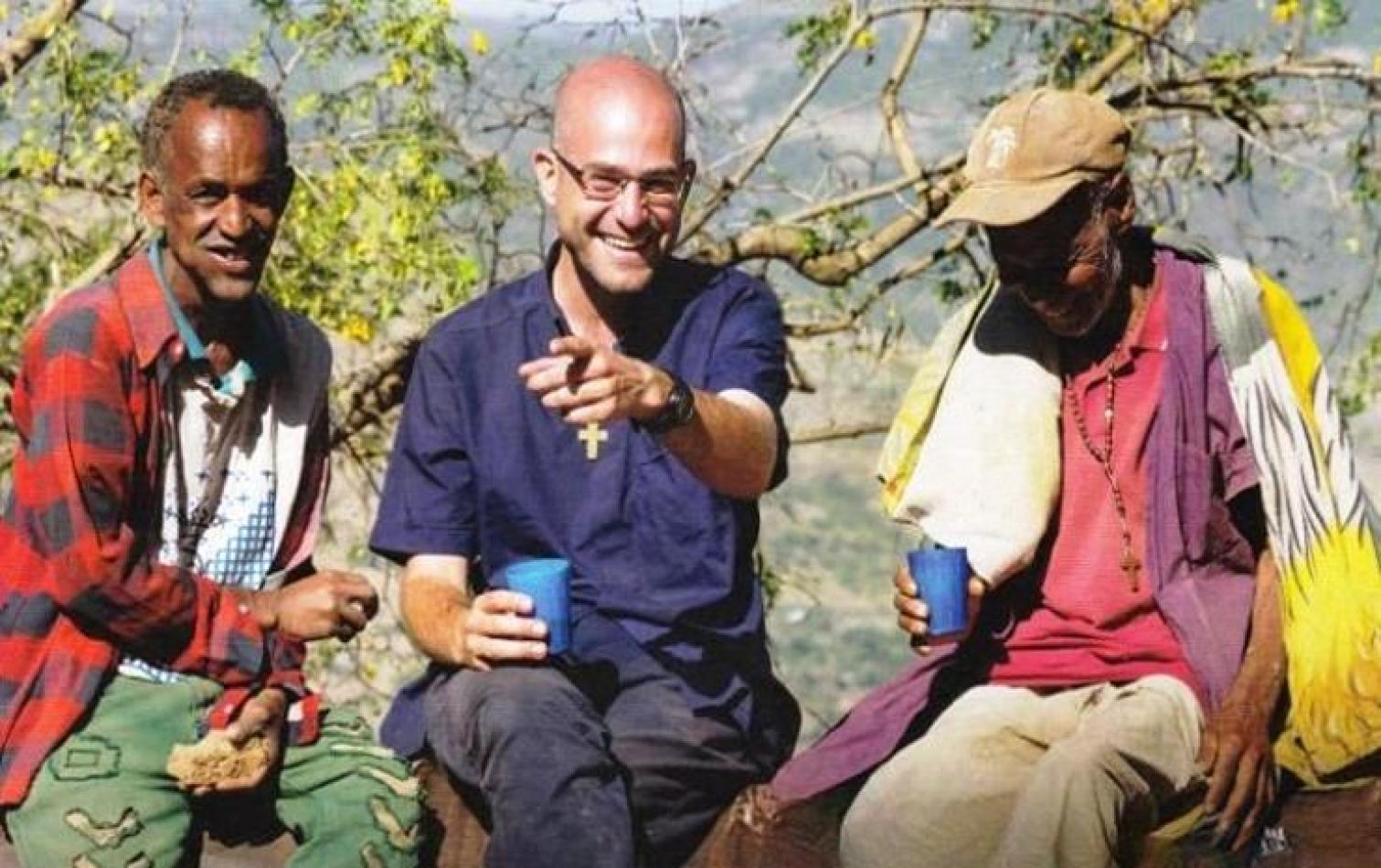Daniele Comboni
Missionari Comboniani
Area istituzionale
Altri link
Newsletter
Saturday, February 11, 2023
Fr Paul Schneider is an American-born Spanish diocesan priest. He left his home to become a missionary in Ethiopia. He talked with us about his experience with the Oromo people. Here is what he said. My mission is in Lagarba which is located in the region of Oromia. The distance from Lagarba to Ethiopia’s capital Addis Ababa is approximately 215 km. I’ve been on this mission for five years. I’ve learned the Amharic language, and I already speak some Oromo.
To be honest, I never thought that the mission would be so exciting. I am involved in social projects. Since we have finished the boreholes in the schools and the rains have started, my pace of work has slowed down in terms of construction and projects, but in terms of personal relations, these have intensified, with community members from many families in the area, both Christians and Muslims.
Together with the voluntary cooperation of the people, we are planting a lot of trees, it’s the right time for it; now it’s raining and the ground is not drying out. We have planted about five thousand plants, mostly conifers and Grevilleas. We have also planted many fruit trees at the mission.
We also encourage the villagers to plant trees on the edges of their fields and on land that has been left fallow by erosion or continuous cultivation. Nothing can ensure that the rain may be as it used to be, but the shade from the trees certainly will reduce soil temperature, prevent moisture from evaporating, and when their leaves fall, they will mulch (in the case of deciduous trees) and make the soil more fertile.
Sometimes, I think back to why I came here, and evaluate all these years in the mission. Although hardships are our daily bread, if the missionary experience during these years had not been an opportunity to grow in faith and joy, I would have returned long ago to my diocese of Getafe, in Spain.
Faith gives us many gifts, it opens doors, hearts and people. The mission can only be lived from our faith. I didn’t come here to build houses, bridges, roads and boreholes, or to plant trees. I do all that but I don’t even consider myself the author of these works, much less boast about them, even if I enjoy working and I am passionate about them. I came here to share God’s love. That is evangelization. My presence here is to live among the poor, to be their father and their shepherd, and to contribute whatever I can to the betterment of their lives, spiritually, materially, in everything.
When you live with the people, the poor share what they have, and they also ask you to share. They ask you often, sometimes they overwhelm you; sometimes you give and sometimes you refuse, but in either case, you know that Christ asks you to renew your generosity daily, and the mission demands that you overcome your selfishness, make sacrifices and live with austerity.
Austerity, for example, in food. If I have some special food that I like, I prefer to share it with those who live with me and, if not, it is better I deprive myself of it and not buy it, and just eat what people eat, even if sometimes I miss some things such as chocolate or meat. Here you don’t eat à la carte, or special things bought in the city, such as cold cuts, tinned tuna, cold meats, powdered milk or chocolate unless, as I say, you invite everyone you are with.
I no longer have any excuse for not eating what they eat, as my stomach is more than adapted, although I don’t always love it. I have got used to always eating vegetables and injera (bread made from fermented teff flour), and not eating meat, dairy products or eggs except occasionally, when there is a party or when I go to the city, which can be every month or every two months.
As far as possible, and without prejudice to health, whoever comes here for a long time should eat and drink what is here, what the people eat and drink. Everyone loves sugar and coffee. This is the land of coffee. After five years, I have to say that I am very happy with this life, with its toils and privations. It is the dynamic of sacrifice that is repeated every day, like the Eucharist. You are consumed, and you know that the sacrifice has an eternal purpose, that God has prepared a reward and rest for you.
[Comboni Missionaries]




